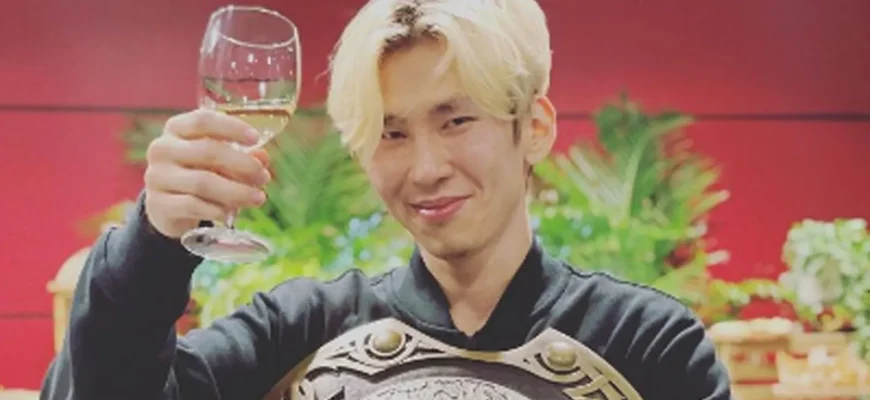The world of competitive Dota 2 is a tempestuous sea, where titans clash and fortunes turn on a dime. Yet, even in this volatile environment, certain patterns emerge, offering profound insights into the state of professional play. Following the conclusion of Riyadh Masters 2025, a significant tournament boasting a $3 million prize pool in Saudi Arabia, a striking observation has surfaced from one of its key participants. Alexander “TORONTOTOKYO” Hertek, the accomplished offlaner for Aurora Gaming, has offered a compelling analysis that challenges conventional wisdom regarding elite-tier competition.
TORONTOTOKYO`s Core Observation: The Unprecedented Parity
Aurora Gaming concluded their Riyadh Masters campaign with an 8th-place finish, a respectable outcome, yet one that, according to TORONTOTOKYO, left a lingering sense of unfulfilled potential. His post-tournament reflections, shared via a team vlog, cut straight to the heart of the matter: “Any team from those that made it into the top-8 can beat any other.” This isn`t mere bravado; it`s a testament to what he perceives as an unprecedented level of parity among the top contenders. In his view, the competitive landscape has flattened, with the skill gap between the top echelons shrinking to near-invisible proportions. The notion of a clear hierarchy, where a few dominant squads dictate terms, seems to be a relic of a bygone era, replaced by a meticulously balanced ecosystem where theoretical superiority often yields to practical unpredictability.
The Single-Elimination Conundrum
This perceived equilibrium, while undeniably thrilling for spectators, presents a unique challenge for tournament formats. Riyadh Masters 2025 employed a single-elimination bracket for its decisive stages. For TORONTOTOKYO, this format, while certainly swift and dramatic, becomes a double-edged sword when competitive parity is at its peak. “This is `Dota,` any team from those that made it into the top-8 can beat any other,” he reiterated, highlighting the inherent lottery of a single-elimination scenario. When teams are so closely matched, a momentary lapse in judgment, an ill-timed engagement, or a single miscalculated draft can spell the abrupt end of a multi-month journey. One might cynically observe that it reduces the quest for a champion to a high-stakes game of rock-paper-scissors, albeit with significantly more complex algorithms involved.
Advocating for the Double-Elimination Standard
His proposed remedy? A double-elimination bracket. “It would be good if this tournament was double-elimination, not single-elimination,” he mused. The rationale is deceptively simple: given the near-identical skill sets, a second chance allows for a more comprehensive assessment of a team`s capabilities. It provides a crucial buffer against the unpredictable nature of high-level play, ensuring that a singular off-day doesn`t prematurely terminate a contender`s aspirations. More importantly, from a fan`s perspective, a double-elimination format would translate into “a lot of high-quality and interesting `Dota` for the viewers.” In an era where competitive balance reigns supreme, it seems almost counter-intuitive to truncate the very spectacle the audience craves by opting for a format that prioritizes expediency over exhaustive demonstration of skill.
Broader Implications: A Golden Age or a Statistical Anomaly?
TORONTOTOKYO`s observations invite a broader discussion about the current state of professional Dota 2. Is this remarkable parity a sign of a golden age, where talent is so widespread that any contender could potentially seize the throne? Or is it perhaps a reflection of a stable meta-game, where optimized strategies leave less room for innovation to create decisive advantages? Could it be a healthy indication that coaching, analytics, and player development have reached a point where fundamental differences between elite squads are minuscule, making mental fortitude and clutch execution the ultimate differentiators? Whatever the underlying cause, the consequence is clear: every match among the top tier is a genuine contest, where the outcome hangs precariously in the balance, defying easy prediction.
Conclusion: The Quest for True Champions
Riyadh Masters 2025, held from July 8 to 19, showcased not just elite gameplay, but also the evolving narrative of competitive Dota 2. TORONTOTOKYO`s insights serve as a valuable reminder that while the thrill of victory and the agony of defeat remain constant, the mechanisms by which champions are crowned warrant continuous scrutiny. In a world where every top team can theoretically defeat every other, perhaps the greatest challenge isn`t just to be superior, but to survive the unforgiving gauntlet designed to find the truly resilient. And for that, a judicious application of format design might not be a luxury, but a necessity for the integrity and entertainment value of the competitive narrative.









